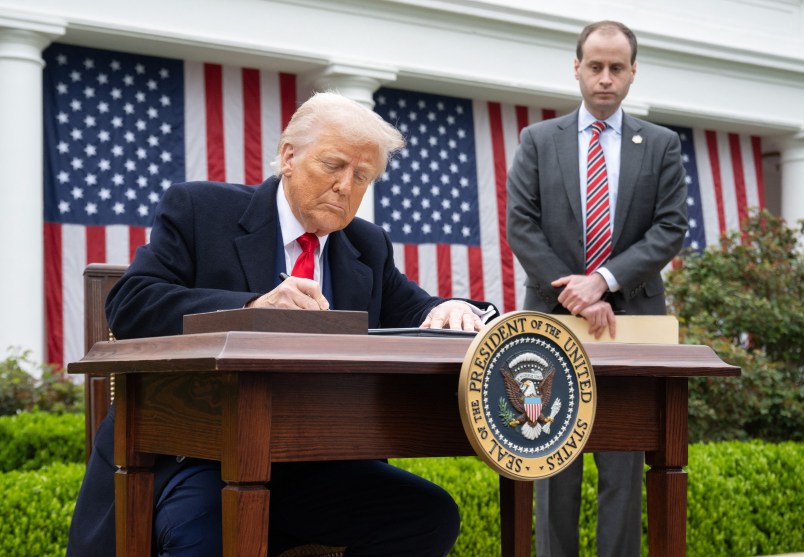The trade court’s decision that Trump’s entire trade war was based on powers President Trump didn’t actually have is a big, big deal. But there are some details that are important to consider. As we’ve discussed in earlier posts, this isn’t the only law in which Congress has delegated authority over trade and tariffs to the President, a power which the Constitution gives entirely and unambiguously to Congress. In fact, this law doesn’t deal with tariff authority at all. That’s the whole point of the decision. Yes, Congress has given you a lot of authority over tariffs and trade. But not with this law, the court is saying. Just why he chose this one is important and gives us some visibility into what comes next.
First, the why. When Congress delegated this vast power to presidents, it did so for specific reasons and created processes to constrain the power at least to some degree. That’s what made using the International Emergency Economic Powers Act so appealing. Precisely because the law did not envision using tariffs at all, it included no processes or limitations on their use. If Trump could impose tariffs under this purported authority, he would be a tariff dictator. Again, it all fits into place: precisely because this law doesn’t provide any tariff authority, it didn’t place any constraints on that authority or processes that had to be followed. It really all fits together.
There are a series of laws Congress has passed to give trade authority to presidents. But they tend to be focused on two things — protecting industries with a strong connection to national security and protection in response to unfair trade practices. Those are two areas in which Congress, not unreasonably, thought it might not be able to move with sufficient speed. Those laws require comment periods and investigations. They still give the President a lot of leeway to make “findings” of what threatens U.S. national security or constitutes unfair trade practices. But those criteria and processes and comment periods, even for this administration, significantly reduce the unilateral and willful authority Trump has used to go about all of this.
It’s not just a matter of easier or harder, quicker or slower. A huge amount of the drama of the last two months has been precisely the spectacle of Trump’s purportedly total and unchecked power. Trump can wake up one morning and totally upend the whole global economy. He can just tweet about 50% tariffs on Europe and well … now we’re up for a totally new drama.
These other laws work very differently. They tend not to apply to consumer goods. The cheap measuring cups you buy on Amazon have no impact on U.S. military capacity. They’re focused on things like steel production, high-end computers, uranium — again, things that the government can’t just leave to the market because control over them is required for military power and national security. If there are specific unfair trade practices, you need to say what they are. They need to be at least kind of real.
This all assumes, of course, that other courts will back the trade court’s opinion. But as I wrote last night, I suspect they will, though I’m not making any firm predictions. There’s simply no basis on the merits for Trump to claim these powers. The three judges were appointees of Reagan, Obama and Trump. That speaks with some real weight. And finally, there’s what I yesterday called the Powell Doctrine 2.0: the fact that this Court has shown that notwithstanding the dictates of its pet theories (unitary executive authority) it’s pretty solicitous of old-style conservative economics and, not to put too fine a point on it, the interests of organized wealth. So NLRB is out; but the Fed is cool. Because. So giving the President the power to cause recessions and fuck with the global economy as a hobby just isn’t something they’re likely to look favorably on. I think this decision will stick.
If it does stick, that means not only that Trump’s capacity to wage trade wars will be much more limited — though by no means ended. It also means the spectacle of his total power will be diminished as well. And that’s significant in a way that goes beyond the narrow confines of trade policy. I’d really urge you to focus almost as much on the curtailment of the spectacle of total power as the impact on trade policy itself.


 Member Newsletter
Member Newsletter
